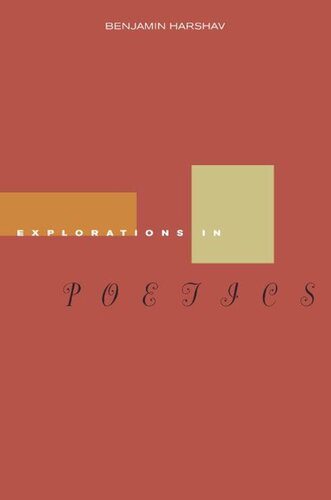

Most ebook files are in PDF format, so you can easily read them using various software such as Foxit Reader or directly on the Google Chrome browser.
Some ebook files are released by publishers in other formats such as .awz, .mobi, .epub, .fb2, etc. You may need to install specific software to read these formats on mobile/PC, such as Calibre.
Please read the tutorial at this link: https://ebookbell.com/faq
We offer FREE conversion to the popular formats you request; however, this may take some time. Therefore, right after payment, please email us, and we will try to provide the service as quickly as possible.
For some exceptional file formats or broken links (if any), please refrain from opening any disputes. Instead, email us first, and we will try to assist within a maximum of 6 hours.
EbookBell Team

4.1
70 reviewsThis collection of essays, originally published at different times, presents a coherent, systematic, and comprehensive theory of the work of literature and its major aspects. The approach, which may be called "Constructive Poetics," does not assume that a work of literature is a text with fixed structures and meanings, but a text that invites the reader to evoke or project a network of interrelated constructs, complementary or contradictory as they may be. The work of literature is not just a narrative, as studies in narratology assume, but a text that projects a fictional world, or an Internal Field of Reference. Meanings in a text are presented through the evocation of "frames of reference" (scenes, characters, ideas, etc.). Language in literature is double-directed: it relates the Internal Field to External Fields and vice versa. The essays explore the problems of fictionality, presentation and representation, metaphor as interaction between several frames of reference, the theory of "Integrational Semantics" in literary and other texts, the meaning of sound patterns in poetry, and the question of "literariness." This theory and its specific aspects were developed by the author in Israel in the 1960s and 1970s and lay at the foundations of the Tel-Aviv School of Poetics. Revived now, it resonates with the current mood in literary criticism.